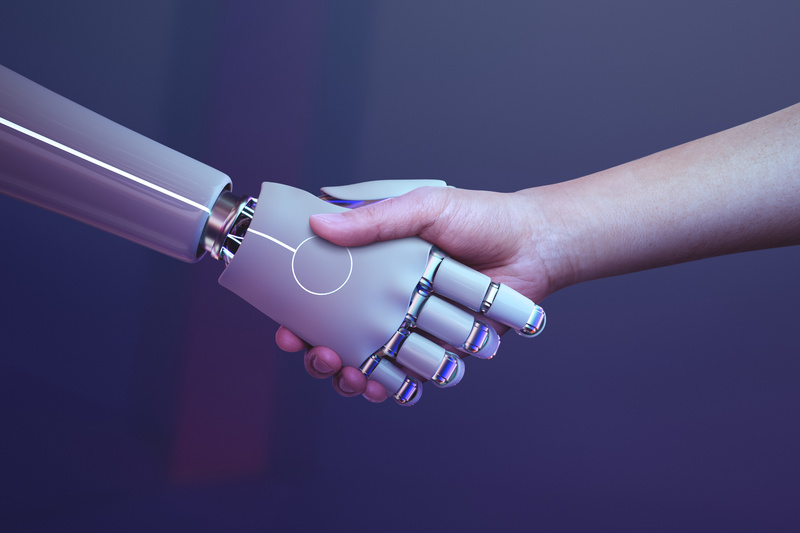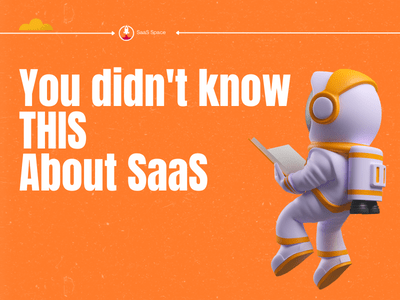Each innovation brings more demand into the field, so did SaaS, entering the digital landscape. Consumers’ expectations increase rapidly, businesses need to keep up. So, what do we do? Artificial intelligence brings us new opportunities and solutions in the form of AI-powered chatbots. With artificial intelligence, widening our capabilities when it comes to customer support, we smooth our path to success. AI chatbots are exactly what is required – responsive, scalable, intelligent.

AI chatbots have proven efficient in every aspect. They reduce response times, offer 24/7 quality customer support, and enhance user experience. Risks? As with any digital innovation, we are facing security risks. However, any technology needs careful and mindful deployment.
With that being said, this topic is a large one. This article is dedicated to help you decide, is it worth it for you.
Why SaaS Companies are Turning to AI Chatbots
1. Scalability and Efficiency
It’s hard to manage the increasing support staff when it comes to customer support. The team just keeps increasing in human numbers. Chatbots take on a high volume of customer interactions, thus preventing the staff from largen. They can manage thousands of conversations, helping startups and enterprises alike scale support with minimal overhead.
2. 24/7 Customer Support
24/7 customer support is highly hard to maintain. People get tired, during night shifts they get sleepy, and the quality of customer support is uneven. Unlike human agents, chatbots don’t require any time off. This always-on capability ensures users across different time zones can access support anytime. Through chatbots, we can earn global customer satisfaction.
3. Instant Response Times
Speed is a critical factor in customer satisfaction. AI chatbots respond to queries just within a second. That reduces wait times and provides instant resolutions. Responsiveness is exactly what customers are looking for.
4. Cost Reduction
Deploying a chatbot can significantly reduce the cost per support interaction. AI chatbots will handle routine inquiries, and free up human agents to focus on more complex problems, optimizing resources and improving ROI. No need to waste manpower on easy cases!
Current Trends in AI Chatbots for SaaS

1. Conversational AI and Natural Language Processing (NLP)
What people are also expecting is human communication. People tend to avoid AI. Thanks to NLP advancements, chatbots now understand and respond in a more natural, seamless manner. Tools like OpenAI’s GPT, Google’s Dialogflow, and Microsoft’s LUIS let developers build bots that grasp context, tone, and even human sentiment. We can skip the uncanny valley nowadays.
2. Multilingual Support
Language is also a huge problem in only human customer support teams. People simply can’t be fluent in all of the languages, can they? With global SaaS reach, multilingual bots are becoming the norm. AI chatbots are now equipped with translation capabilities, so they can support diverse customer bases.
3. Integration with CRM and Helpdesk Tools
As with any technology nowadays, chatbots don’t operate alone in the corner. They can be plugged in, integrated, connected. They merge with CRM systems like Salesforce or HubSpot and integrate into helpdesk platforms like Zendesk or Freshdesk easily.
4. Proactive Support Capabilities
AI chatbots behave not just reactively, but proactively. They reach out to users as soon as issues are detected, offer onboarding help, and even suggest tips based on user behavior.
Addressing Chatbot Security Risks
While AI chatbots bring many benefits, they also introduce new vulnerabilities. And as long as customer interactions become more automated, chatbot security risks become a serious concern. But why?
Key risks include:
- Data breaches due to poor encryption
- Identity spoofing through weak authentication methods
- Bot manipulation through prompt injection or adversarial input
- Exposure of sensitive information via poorly designed flows
These risks are very predictable and can be dealt with in advance, if we take steps, like: using encryption, regular audits, secure API integration, access controls, and compliance with data privacy regulations like GDPR and HIPAA.
Best Practices for Implementing AI Chatbots in SaaS
To leverage the full potential of AI chatbots, SaaS companies must follow a strategic approach.
1. Define Clear Objectives
Before deploying a chatbot, understand its purpose. Is it for lead qualification? Is it a customer support agent? Onboarding, billing inquiries? Clarity in goals is your guarantee of a better design and outcomes.
2. Start Small, Then Scale
Give your chatbot a test run with a limited user base or specific function. Analyze results, fix issues, and scale gradually. Treat it as a science project. This approach prevents you from finding and fixing basic issues on an already running chatbot, as well as prevents bad user experience.
3. Ensure Seamless Human Handoff
Not all the problems can be solved by bots. Ensure a smooth transition to a human agent with full context carried over, when necessary, so the user doesn’t have to repeat information. That’s a basic service quality.
4. Prioritize Data Security
Security is your first priority. Equip every point of interaction—use HTTPS, encrypt stored data, and authenticate users. Ensure compliance with industry regulations. Always test your chatbot for potential vulnerabilities. These simple actions will keep you protected.
5. Regularly Update and Train the Bot
AI chatbots must evolve with your product and customer base. Regular updates and continuous training with new queries, feedback, and product updates will keep them relevant and efficient.
Top AI Chatbot Tools for SaaS
Here are some of the top platforms helping SaaS companies build and manage effective chatbots:
| Tool | Key Features | Ideal For |
| Intercom | Smart routing, team inbox, proactive messaging, integrations with CRM tools | Mid to large SaaS businesses |
| Drift | Lead generation focus, conversational marketing, real-time chat | Sales-driven SaaS platforms |
| Tidio | Multichannel support, automation, AI training | Small to medium businesses |
| Freshchat | AI + human hybrid support, contextual support, bot builder | Growing SaaS companies |
| Dialogflow | Advanced NLP, speech-to-text, custom flows | Developers and tech startups |
| Botpress | Open-source, developer-friendly, on-premise options for data control | Privacy-focused SaaS |
Notable SaaS Companies Successfully Using Chatbots
1. Slack
Slack uses AI chatbots for onboarding new users and helping them navigate features. Its bot helps with tutorials, setup instructions, and third-party tools integration.
2. Shopify
Shopify’s chatbots help merchants with order tracking, inventory questions, and customer inquiries. Their bot reduces workload and increases efficiency during peak times.
3. Zoom
Zoom’s chatbot, “Zappy,” manages support tickets, answers FAQs, and routes users to the right helpdesk channel, streamlining the overall support process.
The Future of AI Chatbots in SaaS
The future of AI chatbots in SaaS is promising indeed.
1. Hyper-personalization
AI models will analyze user data to deliver highly tailored responses. They will be personal advisers offering suggestions, solutions, or product upgrades based on behavior and preferences.
2. Voice-Enabled Chatbots
As voice recognition improves, voice-based AI chatbots will become more common in SaaS customer support, providing hands-free, accessible service.
3. Emotional Intelligence (EQ) Bots
Bots will eventually become capable of detecting customer emotions (e.g., frustration or confusion), and a response with empathy will redefine the user experience.
4. Decentralized Chatbots Using Blockchain
Security and privacy will get a boost with blockchain-backed chatbots. Chatbots will gain tamper-proof conversation logs and better data control.
Final Thoughts
AI chatbots are no longer a futuristic concept—they’re already an integral part of the SaaS support ecosystem. Their ability to enhance efficiency, reduce costs, and improve customer satisfaction cannot be unrecognized. Still, with the reliance on chatbots comes the responsibility to address emerging concerns. Particularly those surrounding chatbot security risks.
But not to worry, because by investing in secure architecture, and choosing the right tools, SaaS companies can successfully safeguard user data and trust.
Artificial intelligence is taking strong positions in a lot of fields, replacing non-efficient practices. Chatbots are, surely, the future of better customer support systems. Evenly efficient and always available, chatbot implementation is not even a question anymore. Choose the best provider and get prepared for the future now.

- Top 10 Best Sites to Buy Quora Upvotes - September 3, 2025
- How New Technology Is Changing the Face of Customer Support - August 18, 2025
- How SaaS Tools Are Streamlining Contractor Operations - August 14, 2025


